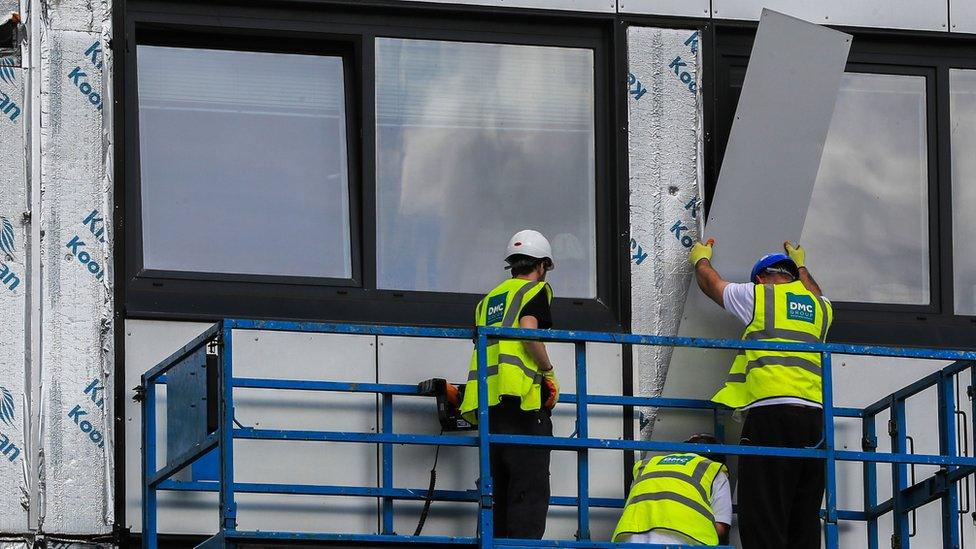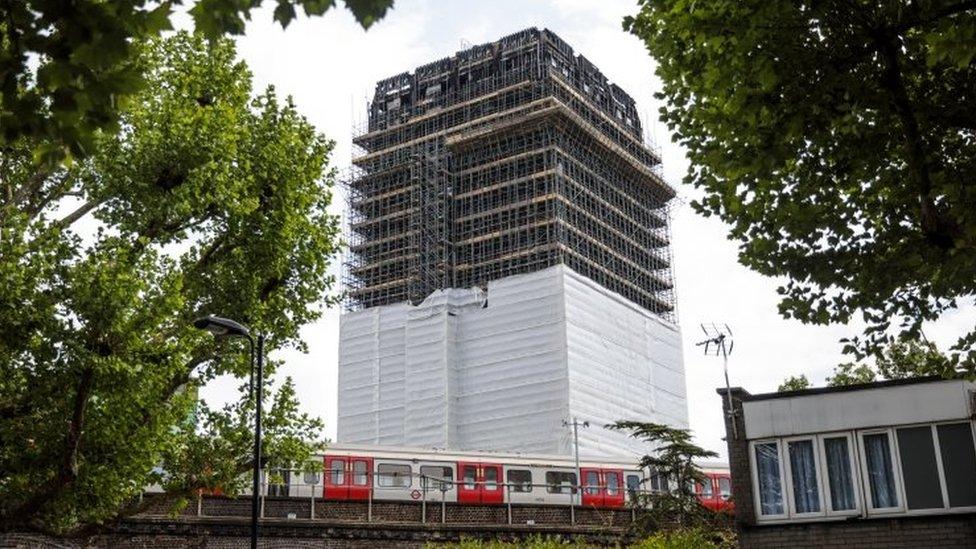Combustible cladding ban set to be announced
- Published

Cladding has been removed from numerous high-rise buildings following the Grenfell Tower fire
Combustible cladding is to be banned for all new schools, hospitals, care homes, student accommodation and residential buildings in England above 18m (60ft).
Housing Secretary James Brokenshire will make the announcement on Monday at the Conservative Party conference.
Mr Brokenshire is expected to say he wants to bring about a "change in culture on building safety".
The move comes 15 months after the Grenfell Tower fire.
In a keynote speech to the conference in Birmingham, Mr Brokenshire will say the "unimaginable horror" of the Grenfell disaster, which cost the lives of 72 people, has "underlined the need" to ensure "such a disaster cannot happen again".
The ban, which follows a lengthy government consultation, will cover all combustible materials, including cladding, on new buildings.
However, it will not be applied retrospectively where materials have already been fitted.
Currently, building regulations in the UK state, external all insulation and filler materials for cladding on high-rise buildings must be of "limited combustibility".
The government is already undertaking a £400m programme to remove suspect cladding from all high-rise social housing in England and is working with those responsible for private blocks to take action.
The new ban will be implemented through changes to building regulations to be brought forward in late autumn.
Earlier this year, the Royal Institute of British Architects called for a total ban on flammable cladding, as well as a requirement for sprinklers to be fitted, and a second means of escape for high-rise residential buildings.
- Published17 May 2018

- Published6 July 2018